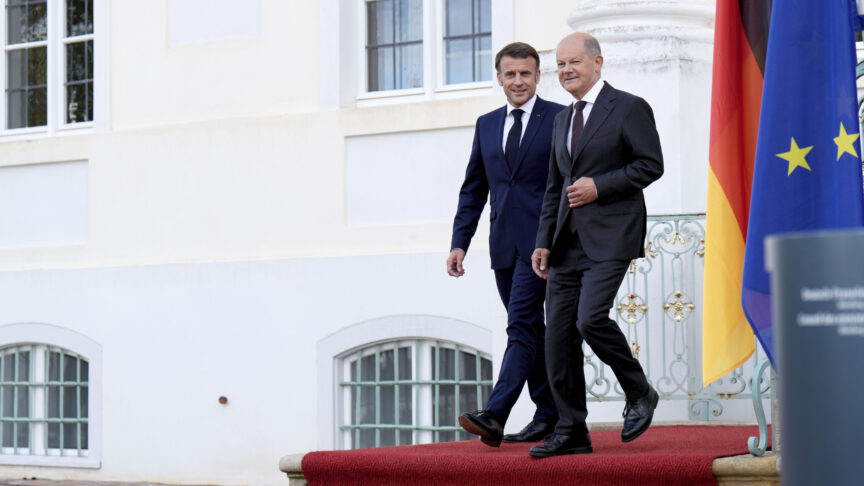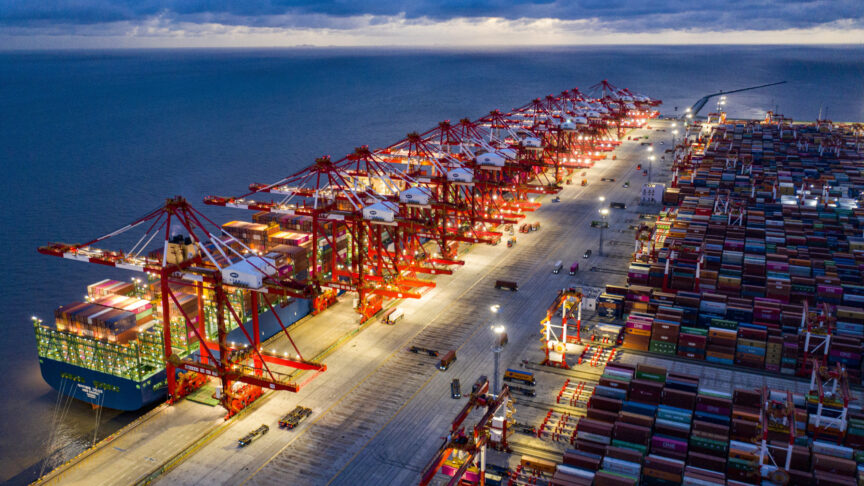The drawbridge fallacy
Terrorist attacks in Brussels were quickly pounced on by Brexit supporters, but is Britain's security is strengthened by EU cooperation?
Before the EU referendum campaign started, Peter Kellner argued that the most likely outcome would be a victory of the In-campaign. Although he thought the vote could be close, he argued that the undecided would be persuaded by two factors: the credibility of the ‘In’ champions (most importantly David Cameron’s among Tory voters) and the fear of making a risky decision (he said even people who are critical of the EU would “stick to nurse for fear of something worse”). There was however one major caveat to the Kellner thesis: events. What would happen to support for the EU in the wake of some unforeseen catastrophe such as the eurocrisis or a Paris-style attack? “In that case the dangers of Brexit might well look far less frightening”, Kellner predicted.
It looks like we will now find out.
Even before the second attack in Malbeek station had even happened, some of the Brexiters had already instrumentalised the events in Brussels. Telegraph journalist Allison Pearson tweeted that Brussels is the “jihadist capital of Europe” and called on people to vote for Brexit. UKIP spokesman Mike Hookem blamed Schengen for the attacks – notwithstanding the fact that the attack in Brussels, according to present knowledge, were committed by Belgian citizens. But the most powerful intervention came from Richard Dearlove, who led MI6 between 1999 and 2004. He argued that the security penalty for a Brexit from intelligence sharing would be low because most intelligence co-operation is based on bilateral agreements. Moreover, according to him, “Brexit would bring two potentially important security gains: the ability to dump the European Convention on Human Rights and greater control over immigration from the European Union”.
But the question is: is the picture that Richard Dearlove gleaned of the security landscape over a decade ago still true?
The most important thing to realise however is that in spite of all the talk about Brussels as the capital of jihadism, less than 10 years ago the world talked about “Londonistan”. Britain was seen as the weakest link in the European counter-extremist chain. When the London attacks happened on 7/7, the terrorists were homegrown rather than imported, but it was our membership in the European Union that allowed us to go after the perpetrators. Because of the European Arrest Warrant, the UK was able to quickly extradite one of the fugitive bombers, Hussain Osman, from Italy
And it turns out that many of the most important people paid to keep Britain safe since Dearlove retired – working for intelligence agencies, the police forces, the criminal justice sector – seem to think just the opposite of what Dearlove claims.
The former head of GCHQ, Sir David Omand, entered the debate to contradict the Dearlove claims, saying the UK “would be the loser in security terms from Brexit not the gainer”. He warned that leaving the EU would “jeopardise” intelligence sharing. The heart of his case seems to be that if ISIS and other criminals operate across borders, the police and intelligence agencies should not become prisoners of national frontiers.
As Pauline Neville-Jones, former Chairman of the British Joint Intelligence Committee and former Minister of State for Security and Counter Terrorism told me “pulling up the drawbridge means bringing the frontier control right to our doorstep – but we want to push it away”. Neville-Jones claims that being in the European Union allows the UK to push its frontiers into the jurisdiction of other member states. It allows the UK to get border authorities to stop people getting on to planes and trains at source.
What of Dearlove’s claim, that Britain’s closest intelligence sharing is happening outside the EU anyway, with the Five Eyes (Australia, Canada, New Zealand, UK, US)? These are indeed the most important intelligence-sharing relationships. Tellingly, however, all of the Five Eyes partners want Britain to stay in the EU. Also, for attacks by jihadists and other people it seems likely that the UK will depend on intelligence sharing from Germany and Italy than from Canada or even the United States.
Dearlove claims that if, say, the German Verfassungsschutz had information about an imminent attack in London, it would not withhold that information from its British counterparts just because the UK was no longer an EU member. But the professionals I spoke to claimed that a lot of real intelligence sharing is upstream rather than at the moment when an attack is planned. As Europe tries to learn lessons from recent attacks there will be a concerted attempt to have the agencies work better together. It would surely be better for Britain to be at the table for this process.
Neville-Jones furthermore underlined that while intelligence sharing is possible through bilateral or multilateral agreements, police cooperation as offered by EU membership is much more difficult. It requires continuous, everyday cooperation of a level impossible outside the EU. Europol, the Law enforcement agency of the EU has become a decisive arm in the fight against international crime and drugs and cybercrime. EU Police share fingerprints, DNA markers, vehicle registrations. Over the last five years, European Arrest Warrants have allowed us to bring before the courts 650 people, including 51 alleged killers and at least 62 wanted for child sex offences. These warrants have also allowed a spectacular reduction in the time taken to extradite someone: from an average of one year to 48 days.
Rob Wainwright the head of Europol also entered the debate on security – telling the BBC Today programme that “The scale and level of the integration the UK now has with its EU partners in this domain is considerable. I see the benefits of that for British police authorities everyday.”
He said that apart from the advantage of the European Arrest Warrant, the UK police had access to a database containing details of 300,000 wanted criminals and missing people.
But will the public debate will reflect the views of the national security professionals? Gideon Rachman wrote in an interesting piece in the Financial Times claiming that while the ‘remain’ sides arguments are more intellectually powerful, the Brexiters have found a way to make their claims appear simple and intuitive. He chided the ‘remain’ side for putting forward intellectually solid arguments that are unhelpfully convoluted: “If you are explaining, you are losing,” he said.
Nowhere is that more true than in the security debate where the Brexiteers can issue a siren call to pull up the drawbridge. In the weeks ahead, we will see how the debate plays out but there is a challenge to the ‘remain’ side to make their argument on this and other issues in a way that is less convoluted and more intuitive. The bookmakers first instinct was that the Brussels attack favours the outers. They raised the likelihood of Brexit from 33 percent to 36 percent. We will see how the debate that has broken out affects this in the coming months.
The European Council on Foreign Relations does not take collective positions. ECFR publications only represent the views of their individual authors.


